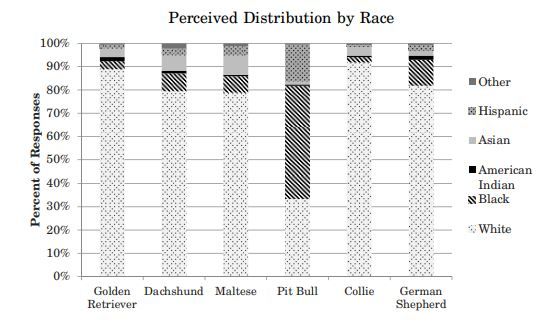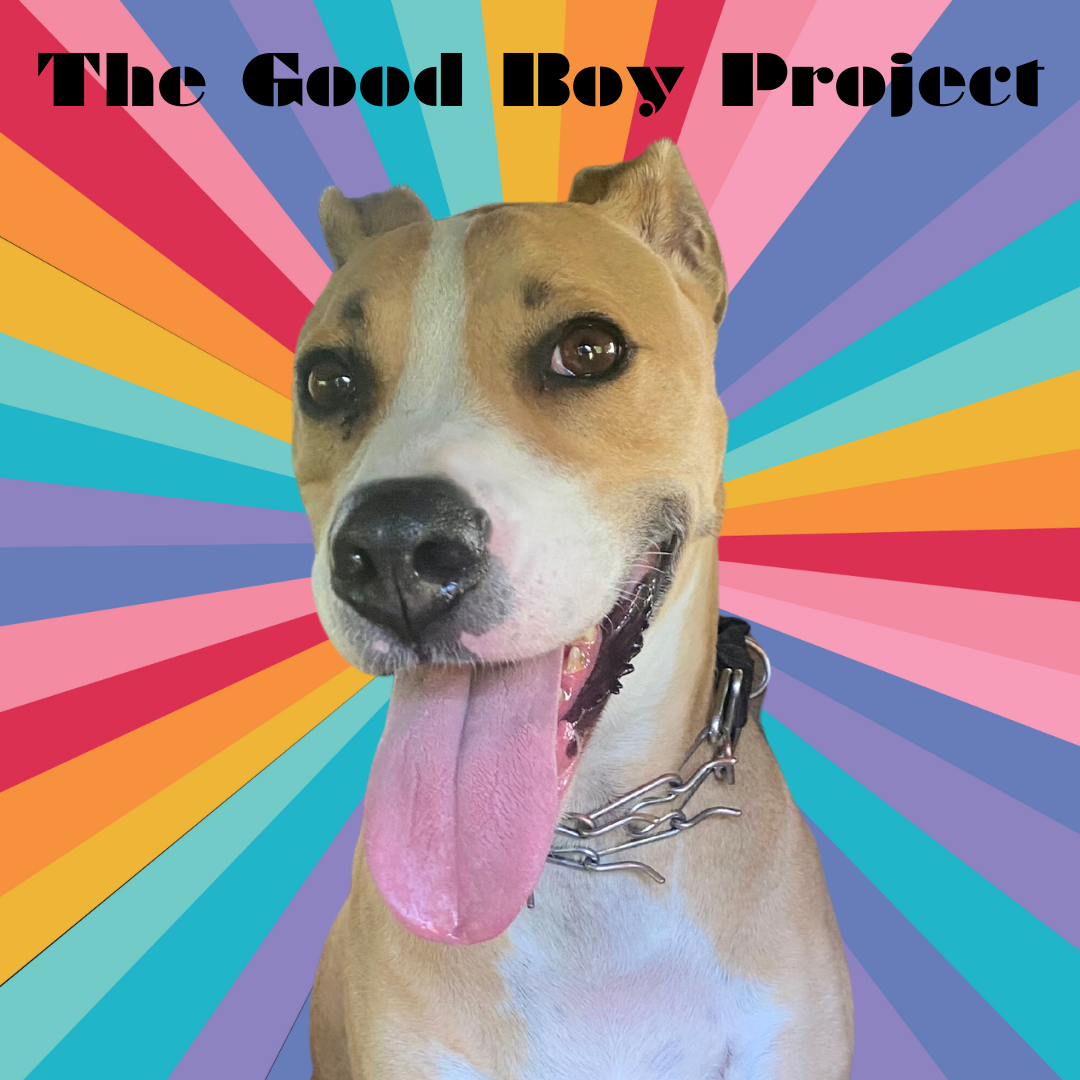Breed-Specific Bans: Banning Dogs or Banning People?

Breed-specific bans have been implemented in over one-thousand communities across America. These types of laws prohibit residents from owning certain types of dogs, and residents who own banned dogs where legislation is enacted must surrender their animals or move to different city or neighborhood without restrictions (1). On the surface level, breed-specific bans seem to be targeted at prohibiting "dangerous" dogs from residing in certain neighborhoods; however, these bans may have more to do with keeping certain people out of their neighborhoods instead.
Dog Breed and Race Study
In 2018, Ann Linder conducted a study for Harvard Law School's Animal Law and Policy Program. Participants in this study were given photos of six dogs of different breeds against a grass background. The six dog breeds in the study were Golden Retrievers, Dachshunds, Maltese, American Pit Bull Terriers, Collies, and German Shepherds.
Regarding the six dog breeds, each participant was asked to answer, "Who do you think is the most likely owner of this breed of dog?" The three questions were about the gender, race, and age group of the owner most likely to own the breed of dog pictured.
170 participants were surveyed in total. Slightly more than half of the participants were female. Almost eighty percent of the participants were white, and the remaining twenty percent were Black, Hispanic, or Asian.
These were the results of the study:

The results showed that unlike the other five breeds that were tested, pit bulls were perceived as most commonly belonging to people of color—specifically, young, Black males. Although not as high of an increase as Blacks, the results also show a stark increase in the number of Hispanics associated with owning pit bulls. These results show that people of color are more commonly associated with owning pit bulls than another type of dog (3).
The War on Drugs
The results of Linder's study are especially concerning when we acknowledge the history behind breed-specific legislation. Breed-specific legislation began to gain popularity in the 1980s (1). The 1980s also marked the decade when President Reagan reinforced many of former President Nixon's "War on Drugs" policies. This led to severe penalties for drug-related crimes and massive increases in incarcerations for nonviolent drug crimes – primarily among the Black community (2).
A series of reports on rising crime rates gained media attention during the 1980s, and gang violence by urban youth began to be tied to “pit bull" attacks (3). By 1987, law enforcement announced that, “Street dope dealers and street gangs have gone to pit bulls.” The pit bull was swept into the media hysteria involving the War on Drugs, and through this media narrative pit bulls themselves became “carriers of the contagion of criminality” (3).
In 1994, John Ehrlichman, President Nixon’s domestic policy chief during his presidency, gave an interview where he admitted that the War on Drugs was all about putting Black people in jail. Ehrlichman said, "We knew we couldn’t make it illegal to be either against the war or Black, but by getting the public to associate the hippies with marijuana and Blacks with heroin, and then criminalizing both heavily, we could disrupt those communities. We could arrest their leaders, raid their homes, break up their meetings, and vilify them night after night on the evening news. Did we know we were lying about the drugs? Of course, we did" (2).
Denver's Breed-Specific Legislation
Denver, Colorado had breed-specific legislation that specifically targeted pit bull-type dogs from 1989 until 2020. In 2020, soon before the vote to repeal Denver's pit bull ban arrived, the University of Denver conducted a study over the city’s breed-specific legislation.
Using data from Denver Animal Protection, the agency that enforced the legislation within the city, the study found that along with over $100 million dollars being spent on the legislation, that there was unequal enforcement of the pit bull ban in racially diverse and Black communities (4).
Kevin Morris, a research associate professor and one of the directors of the study, said, "The enforcement of BSL has taken place primarily in our communities of color in Denver... And this criminalization of certain pet owners has exacerbated the barriers they already experience to accessing pet support services.”
The study revealed that Denver's pit bull ban was disproportionately enforced in the city's most vulnerable areas, particularly in places where “racially diverse communities intersect with predominantly white neighborhoods” (4).
Conclusion
People of color are most commonly associated with owning pit bull-type dogs. Additionally, between the War on Drugs having ulterior motives and previous breed-specific bans being more heavily enforced in communities of color, we must question the implementation of breed-specific bans in our communities. Breed-specific legislation should not be able to dictate which neighborhood someone is allowed to live in. The negative stigmas surrounding pit bulls must be challenged and examined through a factual lens, rather than believing media reports and stories passed on through our neighbors.
Sources
- https://content.naic.org/cipr-topics/breed-specific-legislation#:~:text=Issue%3A%20Breed%2Dspecific%20legislation%20(,about%20dog %20breeds%20and%20aggression.
- 13th, Documentary on Netflix directed by Ava DuVernay.
- https://law.lclark.edu/live/files/32171-25-1-third-articlepdf
- du.edu/news/new-du-research-measures-impact-denvers-pit-bull-ban
